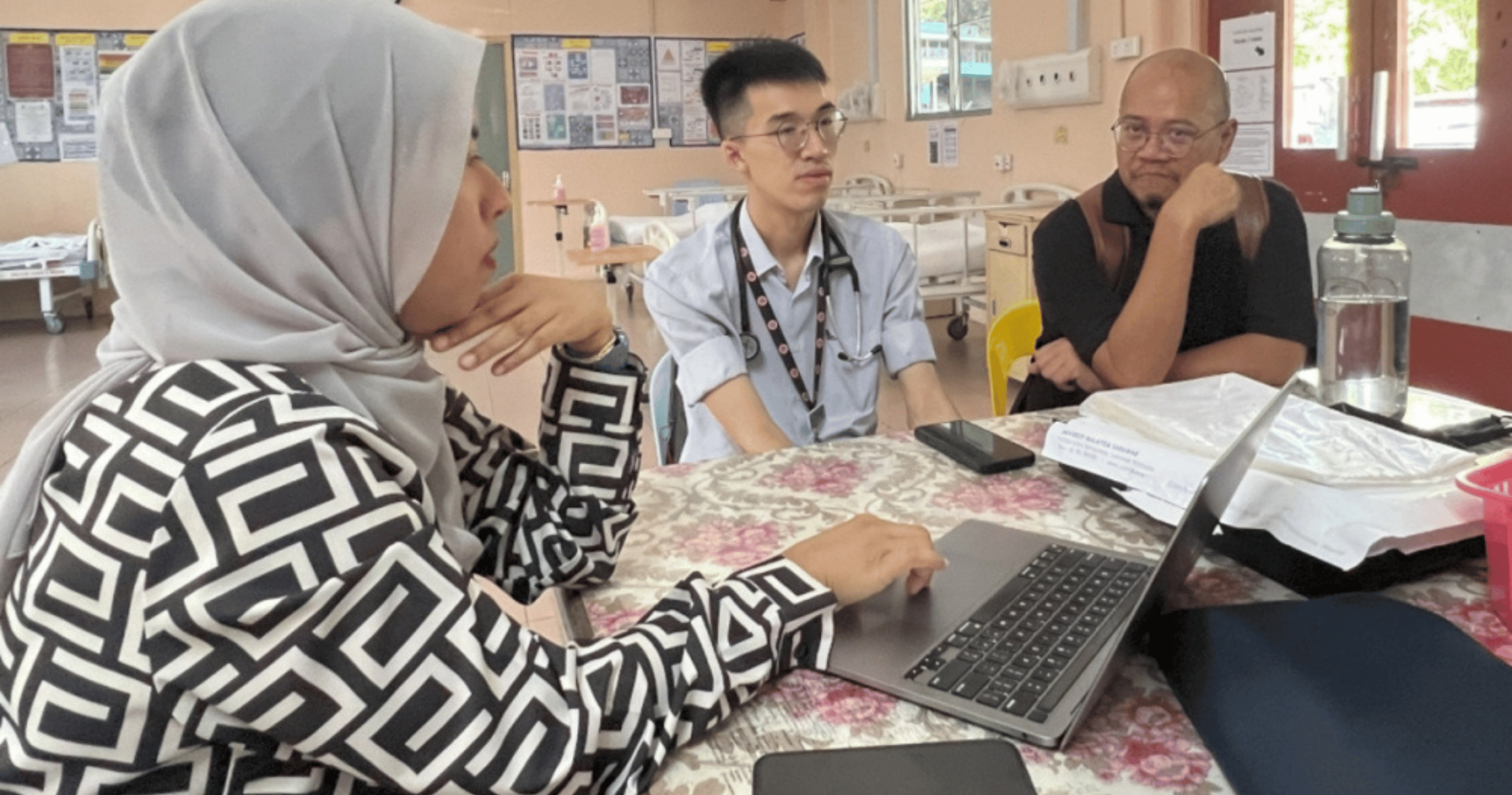LOS ANGELES, Dec 7 — Spectacular lava fountains burst from Hawaii’s Kilauea volcano on Saturday, US volcanologists said, nearly a year after one of the world’s most active volcanoes began its latest eruptive phase.
KAPIT, Aug 24 — Within a small side room at Kapit Hospital in Sarawak, a subtle transformation is taking place. This is not the type of revolution that captures headlines or initiates worldwide trends; rather, it is the kind that preserves lives, one pixel at a time.
In this location, distant from the hectic environment of urban hospitals, personnel create blood slides using traditional methods — a single drop of blood, a smear, and a slide meticulously packaged for transport to a laboratory located hundreds of kilometers away in Kuching. However, the subsequent events mark the commencement of the future.
At Universiti Malaysia Sarawak (Unimas), the aforementioned slides are digitized, processed, and analyzed utilizing a proprietary AI tool created by a team at Universiti Malaya (UM). This system, known as MalariaCare+, is already demonstrating potential in identifying human malaria with enhanced accuracy and speed like never before.
"This is not artificial intelligence merely for its own sake," stated project lead Associate Prof Khairunnisa Hasikin. "This represents applied intelligence, developed with and for the individuals who are directly involved in combating malaria on the ground."
Plasmodium knowlesi, a zoonotic malaria strain that was previously limited to macaques, has now become the primary cause of human malaria in Malaysia, especially in the regions of Sabah and Sarawak. Its similarity to other Plasmodium species when viewed under a microscope, along with a swift replication cycle of 24 hours, renders prompt and precise diagnosis both critical and challenging.
"This is not artificial intelligence created solely for its own purpose," remarked project lead Associate Prof Khairunnisa Hasikin. "This signifies applied intelligence, designed in collaboration with and for the individuals actively engaged in the fight against malaria on the front lines."
An adversary capable of altering its form
Plasmodium knowlesi, a zoonotic malaria strain that was previously limited to macaques, has now become the primary cause of human malaria in Malaysia, especially in the regions of Sabah and Sarawak. Its similarity to other Plasmodium species when viewed under a microscope, along with a swift replication cycle of 24 hours, renders prompt and precise diagnosis both critical and challenging.
In rural clinics, where there is a scarcity of trained parasitologists and the diagnostic tools available are rudimentary, misidentification frequently occurs.
Although there are AI-based tools for malaria, many of them tend to be overly generic, excessively complex, or trained on species prevalent in different regions rather than focusing on local cases.
The gap identified is what motivated the team at UM to create MalariaCare+: a mobile-friendly, AI-driven diagnostic assistant for malaria, specifically designed to meet the unique needs of Malaysia.
Constructing the engine initially
With the assistance of the AI for Medicine Research Grant Scheme 2025, the team initially concentrated on the fundamental aspect: enabling the AI to perceive clearly.
Their primary accomplishment to date is the validation of a graph-enhanced YOLO model — a deep learning framework capable of identifying malaria-infected red blood cells, even in areas with significant overlap. Most image analysis systems encounter difficulties in this context, particularly when dealing with low-quality slides from remote locations.
"We have trained the AI to detect what even the keenest eyes may overlook," Khairunnisa stated. "This is not intended to substitute doctors and clinicians. Rather, it aims to provide them with an additional set of expert eyes at critical moments."
This artificial intelligence model has already been incorporated into a functional application for the detection of human malaria — it is currently undergoing testing with actual blood smears obtained from Sarawak, including samples from Kapit Hospital, and processed at Unimas.
A partnership between various campuses and clinics
Although Kapit Hospital lacks a sophisticated diagnostic laboratory, it serves an essential function in the process: gathering patient samples and sending them to Unimas for staining, digitization, and analysis. This collaboration among UM, Unimas, and frontline clinical environments is what renders the project not only operational but also exceptionally timely.
"We did not create this in isolation," Khairunnisa remarked. "It was influenced by discussions with physicians, technicians, and field researchers who comprehend the actual gaps that exist."
The upcoming phase, currently under development, involves the establishment of a classifier tailored specifically for Plasmodium knowlesi. This deep learning AI model is designed to assist clinicians in determining not only whether a patient is afflicted with malaria but also the specific stage of the parasite; this information is vital for enabling quicker and more personalized treatment.
This will be integrated into an enhanced version of MalariaCare+ along with functionalities such as real-time inference, visual explainability, and longitudinal patient monitoring.
The team is also focused on enhancing the app's readiness for field use: enabling connections with smartphone-linked microscopes, securely storing patient histories, and functioning with limited internet access.
Conversations are currently in progress to incorporate MalariaCare+ into the training modules at Unimas and UM, enabling students to grasp not only the biological aspects of malaria but also the significant role of technology in public health.
"This pertains to digital equity," Khairunnisa stated. "AI tools must not be exclusive to affluent hospitals. They ought to be accessible to everyone, regardless of location — particularly in areas where they are most essential."
A Malaysian approach to addressing global issues
Although the majority of medical AI tools primarily concentrate on diseases such as cancer in affluent nations, MalariaCare+ provides a unique solution: an interpretable AI system tailored for neglected tropical diseases in low-resource environments, developed by individuals who possess a deep understanding of both areas.
This study unequivocally endorses Malaysia's roadmap for malaria elimination. However, its true potential resides in its ability to motivate cross-border adoption and collaboration across Southeast Asia and further afield.
At Kapit Hospital, another slide is meticulously prepared, labeled, and placed into a box for its extensive journey to the laboratory. This may seem like a minor task — however, that slide now has a significant counterpart awaiting at the destination.
This article was contributed by Ir Dr Nahrizul Adib Kadri, a professor of biomedical engineering at the Faculty of Engineering, and the Principal of Ibnu Sina Residential College, Universiti Malaya. He may be reached at nahrizuladib@um.edu.my
For more information about MalariaCare+, please contact Associate Professor Dr Khairunnisa Hasikin at khairunnisa@um.edu.my






